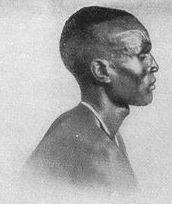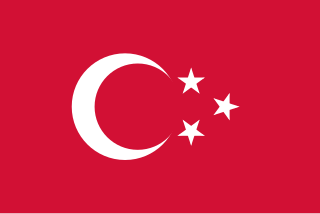Related Research Articles

Khartoum or Khartum is the capital city of Sudan. With a population of 6,344,348, Khartoum's metropolitan area is the largest in Sudan.
Dinka spirituality is the traditional religion of the Dinka people, an ethnic group of South Sudan. They belong to the Nilotic peoples, which is a group of cultures in Southern Sudan and wider Eastern Africa. The Dinka people largely rejected or ignored Islamic and Christian teachings, as Abrahamic religious beliefs were incompatible with their society, culture and traditional beliefs.
Francis Piol Bol Bok, a Dinka tribesman and citizen of South Sudan, was a slave for ten years and later became an abolitionist and author living in the United States.

The Dinka people are a Nilotic ethnic group native to South Sudan. The Dinka mostly live along the Nile, from Mangalla-Bor to Renk, in the region of Bahr el Ghazal, Upper Nile, and the Abyei Area of the Ngok Dinka in South Sudan.

The Nuer people are a Nilotic ethnic group concentrated in the Greater Upper Nile region of South Sudan. They also live in the Ethiopian region of Gambella. The Nuer speak the Nuer language, which belongs to the Nilotic language family. They are the second-largest ethnic group in South Sudan and the largest ethnic group in Gambella, Ethiopia. The Nuer people are pastoralists who herd cattle for a living. Their cattle serve as companions and define their lifestyle. The Nuer call themselves "Naath".

Slavery in Sudan began in ancient times, and had a resurgence during the Second Sudanese Civil War (1983–2005). During the Trans-Saharan slave trade, many Nilotic peoples from the lower Nile Valley were purchased as slaves and brought to work elsewhere in North Africa and the Orient by Nubians, Egyptians, Berbers and Arabs.

The Bari are a Nilotic ethnic group in South Sudan, East Africa. The heir mother tongue is Bari, which belongs to the Nilotic language family.
Abuk is the first woman in the myths of the Dinka people of South Sudan and the Nuer of South Sudan and Ethiopia, who call her Buk or Acol. She is the only well-known female deity of the Dinka. She is also the patron goddess of women as well as gardens. Her emblem or symbols are, a small snake, the moon and sheep. She is the mother of the god of rain and fertility (Denka). The story from her birth to marriage and child-birth is:
She was born very small, when placed in a pot, she swelled like a bean.
Abuk and her mate, called Garang, were given one corn each to eat per day, by the creator god. This happened at the time when Abuk had finished growing.
The whole of all human people would have become famished if not for the fact Abuk went to steal the food the people needed.
The rain god, called Deng, was joined to Abuk in order that there might be an abundance in the land.
A daughter (Ai-yak) and two sons were born to them.

Turco-Egyptian Sudan, also known as Turkish Sudan or Turkiyya, describes the rule of the Eyalet and later Khedivate of Egypt over what is now Sudan and South Sudan. It lasted from 1820, when Muhammad Ali Pasha started his conquest of Sudan, to the fall of Khartoum in 1885 to Muhammad Ahmad, the self-proclaimed Mahdi.

Tonj is a town located in Warrap State, in the Bahr el Ghazal region of South Sudan. It is known by various names, including Kalkuel, Genanyuon, Jurkatac, Madiera, Genngeu, and Tonjdit. The town is bordered by Rumbek, Cueibet, Yambio, Bentiu, and Gogrial. As of 2010, its population is 17,340.

South Sudan is home to around 60 indigenous ethnic groups and 80 linguistic partitions among a 2021 population of around 11 million. Historically, most ethnic groups were lacking in formal Western political institutions, with land held by the community and elders acting as problem solvers and adjudicators. Today, most ethnic groups still embrace a cattle culture in which livestock is the main measure of wealth and used for bride wealth.

The Catholic Church in South Sudan is composed of one ecclesiastical province with one archdiocese and six suffragan dioceses. There have been a total of 31 bishops in South Sudan to date. The bishops of South Sudan and Sudan are currently members of one single bishops' conference, designated as Sudan Catholic Bishops’ Conference.
Ngok Lual Yak is an African sub-tribe, within the Jiëŋ (Dinka) group. They are mainly found in Malakal, South Sudan and inhabit the land along the confluences of the Nile and Sobat rivers. It is believed that the sub-tribe numbers about 95,000. They are devoted ethnics and believe in Deŋdit as their provider. Some of Ngok sections are part of Bor Community and sections who identifies themselves as descendants of Ngok could still be traced!
Mathiang may refer to:

The Dinka–Nuer West Bank Peace & Reconciliation Conference of 1999 was held in what was then the Southern part of Sudan. It is commonly called the "Wunlit Peace Conference" after Wunlit, the village where it was held in eastern Tonj County in Bahr El Ghazal. The conference brought together Nuer from Western Upper Nile and Dinka from Tonj, Rumbek, and Yirol. It is the most prominent and comprehensively documented case of a people-to-people peace process in what is now the Republic of South Sudan.
Ager Gum (1941–1996) was a military leader and song composer from Sudan. She was an army general of the Sudan People's Liberation Army group, now the official army of the country of South Sudan.

The Greeks in South Sudan represent the Omogenia in what became the Republic of South Sudan in 2011. The population is tiny in number – estimated at 90 – but historically played an important role and has some prominent members, especially First Lady Mary Ayen Mayardit.
Aiwel is a mythical hero that is considered the ancestor of the Bor and Dinka people of South Sudan.

Slavery in Egypt was practised until the early 20th century. It differed from slavery in ancient Egypt, being managed in accordance with Islamic law from the conquest of the Caliphate in the 7th century until the practice stopped in the early 20th century, having been gradually phased out when the slave trade was banned in the late 19th century.
The Anglo-Egyptian Slave Trade Convention, also known as Anglo-Egyptian Convention for the Suppression of the Slave Trade or Anglo-Egyptian Convention for the Abolition of Slavery was a treaty between the United Kingdom of Great Britain and Ireland and the Khedivate of Egypt from 1877. The first version of 1877 was followed by an addition in 1884 and a second addition in 1895. It formally banned the slave trade to Egypt. While slavery itself was not abolished, existing slaves were granted the right to apply for manumission, which managed to phase out slavery by the early 20th-century.
References
- 1 2 3 4 5 6 7 8 Beswick, Stephanie (2012). "Mathiang Yak Anek". In Akyeampong, Emmanuel Kwaku; Gates (Jr.), Henry Louis (eds.). Dictionary of African Biography . OUP USA. p. 230. ISBN 978-0-19-538207-5.
- 1 2 3 4 5 "Anek Mathiang Yak (séculos XIX-XX)". Biografias de Mulheres Africanas (in Brazilian Portuguese). Universidade Federal do Rio Grande do Sul. Retrieved 20 December 2022.
- ↑ Ryle, John; Johnson, Douglas H., eds. (2021). What Happened at Wunlit? An oral history of the 1999 Wunlit Peace Conference (PDF). Rift Valley Institute. p. 19. ISBN 978-1-907431-57-9.